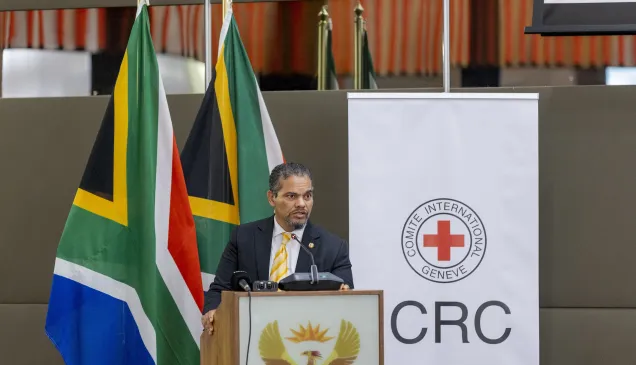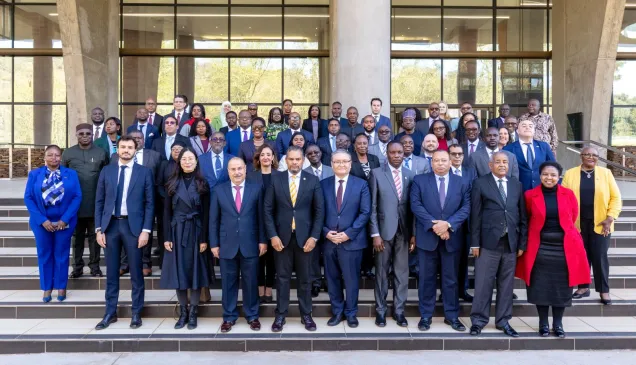A date to remember: the banning of Nuclear Weapons in 2021
The date 22 January marks a victory for humanity. That’s the day the Treaty Prohibiting Nuclear Weapons enters into force, the day that nuclear weapons become prohibited. On this day, the world’s most indiscriminate and inhumane weapons will finally be banned at the global level.
The Treaty Prohibiting Nuclear Weapons is the first globally applicable multilateral agreement to prohibit nuclear weapons outright. It prohibits their use, threat of use, development, production, testing and stockpiling. It also commits States Parties to clearing contaminated areas and helping victims. By providing pathways for the elimination of nuclear weapons, the Treaty is an indispensable building block towards a world free of nuclear weapons. Honduras provided the 50th ratification of the Treaty on 24 October 2020, which was required for the 90-day countdown for the Treaty to enter into force to officially begin.
And yet 22 January will not mark the end of the journey. In fact, the banning of nuclear weapons should be seen as the beginning of multiple efforts to realise the objectives of the Treaty and bring about a world free from nuclear weapons. While 51 Governments have ratified the Treaty, nearly 150 Governments have not, despite strong support from many of those Governments during the negotiation of the Treaty and its adoption at the United Nations General Assembly. While 25 African States have signed the Treaty, only six have ratified it. And while the legal ban of nuclear weapons will officially exist from January, a not insignificant number of States still opposes the prohibition. As the President of the International Committee of the Red Cross, Peter Maurer, has previously highlighted: “It is now crucial to make the Treaty come to life as a new norm of international humanitarian law. The Treaty’s success depends on the broadest possible adherence”.
International organisations, including the ICRC, as well as numerous civil society organisations, will continue to advocate for the realization of the ban. But what is needed is champion States to continue to demonstrate leadership in this regard.
South Africa in particular has long been a supporter of nuclear disarmament, starting from the fact that it was the first country in the world to voluntarily disband its nuclear weapons programme in the early 1990s. The country has once again demonstrated this support through the strong role it played in the negotiations of the Treaty. The Government of South Africa signed the Treaty on 20 September 2017, the very day that it opened for signature at the United Nations in New York. The Government then proceeded to ratify the Treaty on 25 February 2019, making it only the second African State to do so, after The Gambia. In a joint call on Twitter in August 2020, the Department of International Relations and Cooperation of the Government of South Africa and the ICRC recognized that the use of nuclear weapons in Hiroshima and Nagasaki 75 years ago had left an indelible mark on humanity’s conscience. Together the two called on all States to ratify the Treaty Prohibiting Nuclear Weapons urgently. While the issue of nuclear disarmament remains a sensitive and politically charged issue in many regions of the world, South Africa stands out as a beacon, focusing the discussion on the catastrophic humanitarian consequences of the use of nuclear weapons, and providing the necessary moral authority to make those assertions.
This strong support for nuclear disarmament from the South African government will become even more crucial as the Treaty enters into force and becomes binding international law. The success of the Treaty’s first meeting of States Parties, to be organized within 12 months of its coming into force, depends on continued leadership from the Treaty’s champions. The more States that ratify and implement the Treaty, the stronger and more convincing the prohibition on nuclear weapons will become. States like South Africa need to continue to use their considerable influence on the continent, and worldwide, to advocate for this broad adherence to the prohibition.
It is worth repeating: 22 January 2021 is a date to remember. A date to celebrate.
- Sarah Mabeza, Regional Legal Advisor, International Committee of the Red Cross



